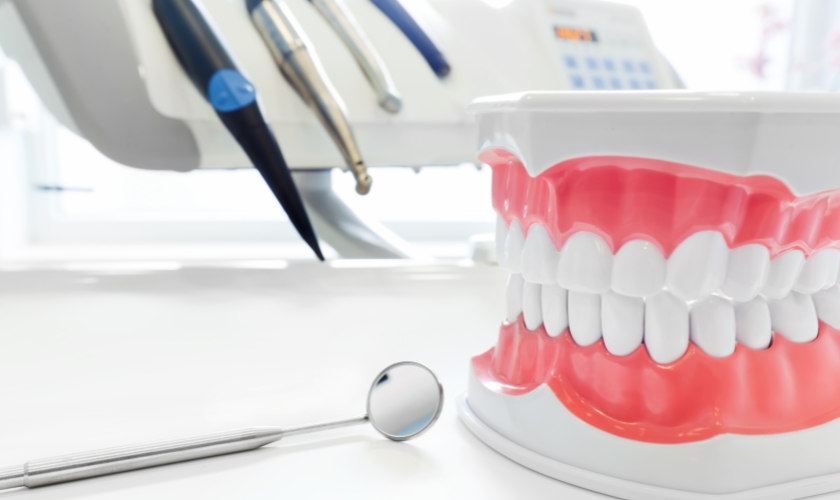
Green Dentistry: Nurturing Sustainable Smiles and a Healthy Planet
If you’ve been to your dental office lately, you might have noticed some positive changes aligning with a growing trend—green dentistry, also known as eco-dentistry. Dental practices are increasingly adopting environmentally friendly habits to reduce their carbon footprint, incorporating technology, sustainable supplies, and energy-saving procedures. In this blog, we’ll explore the advantages of going green in dentistry, the impact dental practices can have on the environment, and how you can embrace eco-friendly habits in your oral care routine.
What Is the Advantage of Going Green in Dentistry?
Green dentistry, or eco-dentistry, is a commitment to promoting environmental sustainability and pollution prevention in dental practices. The benefits extend beyond the dentist’s office:
- Environmental Impact: By conserving resources, using sustainable supplies, and minimizing waste, green dentistry significantly reduces its environmental footprint. This, in turn, helps protect ecosystems and minimizes chemical contamination.
- Cost Savings: Green dentistry practices can generate cost savings over time, leading to lower treatment prices for patients. Implementing eco-friendly measures often results in efficient resource use and reduced waste disposal costs.
- Chemical Contamination Reduction: Green dentistry limits heavy metal waste, especially from silver fillings containing mercury. Proper disposal and recycling practices prevent mercury from entering water sources, safeguarding both human and wildlife health.
What Impact Can Dental Practices Have on the Environment?
Dr. Naved Fatmi, a well-known
dentist in Boca Raton, recognizes the significance of appropriately discarding dental amalgam. With expertise in the field, he highlights the environmental hazards linked to mercury discharges from dental facilities. To safeguard the environment, Dr. Naved Fatmi diligently follows the EPA’s guidelines by employing amalgam separators in his dental clinic. This proactive approach aids in the recycling of hazardous substances and mitigates the release of mercury into the environment.
Green Dental Techniques
The American Dental Association recommends various green practices for dental offices, spanning categories like being proactive and educating staff and patients. Some eco-friendly policies include:
- Environmentally Friendly Sterilization: Implementing green sterilization programs.
- Amalgam Separators: Installing separators to recycle materials from amalgam fillings.
- Paperless Communication: Sending appointment reminders through email or text messages.
- Reducing Aerosol Products: Eliminating the use of aerosol products in dental procedures.
- Eco-Friendly Supplies: Purchasing organic or eco-friendly scrubs and incorporating indoor plants for a greener office environment.
Eco-Dentistry vs. Bio-Dentistry
While green dentistry prioritizes environmentally friendly practices, bio-dentistry takes a holistic approach to patient care. Focused on overall well-being, bio-dentistry supports minimally invasive procedures, and biodegradable supplies, and avoids harsh chemicals. It looks beyond symptoms to identify root causes and often includes the removal of silver amalgam fillings containing mercury.
How Can I Reduce My Dental Care Waste at Home?
You can contribute to eco-friendly dentistry at home with simple steps:
- Eco-Friendly Oral Care Materials: Use toothpaste tablets, bamboo fiber floss, or bamboo toothbrushes.
- Conserve Water: Turn off the water while brushing and avoid rinsing your mouth excessively.
- Recyclable Toothpaste Tubes: Opt for recyclable toothpaste tubes.
- Reusable Straws: Choose reusable straws to minimize single-use plastic.
Dr. Naved Fatmi, a dentist located in Boca Raton, recognizes the significance of eco-friendly or
Green dentistry. He aims to deliver top-notch oral care and support the environment by integrating sustainable methods and products into his practice. Patients are urged to engage in discussions with Dr. Naved Fatmi about collaborating to minimize waste and contribute to a healthier environment, ultimately leading to more sustainable smiles.
 Green Dentistry: Nurturing Sustainable Smiles and a Healthy Planet
If you’ve been to your dental office lately, you might have noticed some positive changes aligning with a growing trend—green dentistry, also known as eco-dentistry. Dental practices are increasingly adopting environmentally friendly habits to reduce their carbon footprint, incorporating technology, sustainable supplies, and energy-saving procedures. In this blog, we’ll explore the advantages of going green in dentistry, the impact dental practices can have on the environment, and how you can embrace eco-friendly habits in your oral care routine.
Green Dentistry: Nurturing Sustainable Smiles and a Healthy Planet
If you’ve been to your dental office lately, you might have noticed some positive changes aligning with a growing trend—green dentistry, also known as eco-dentistry. Dental practices are increasingly adopting environmentally friendly habits to reduce their carbon footprint, incorporating technology, sustainable supplies, and energy-saving procedures. In this blog, we’ll explore the advantages of going green in dentistry, the impact dental practices can have on the environment, and how you can embrace eco-friendly habits in your oral care routine.